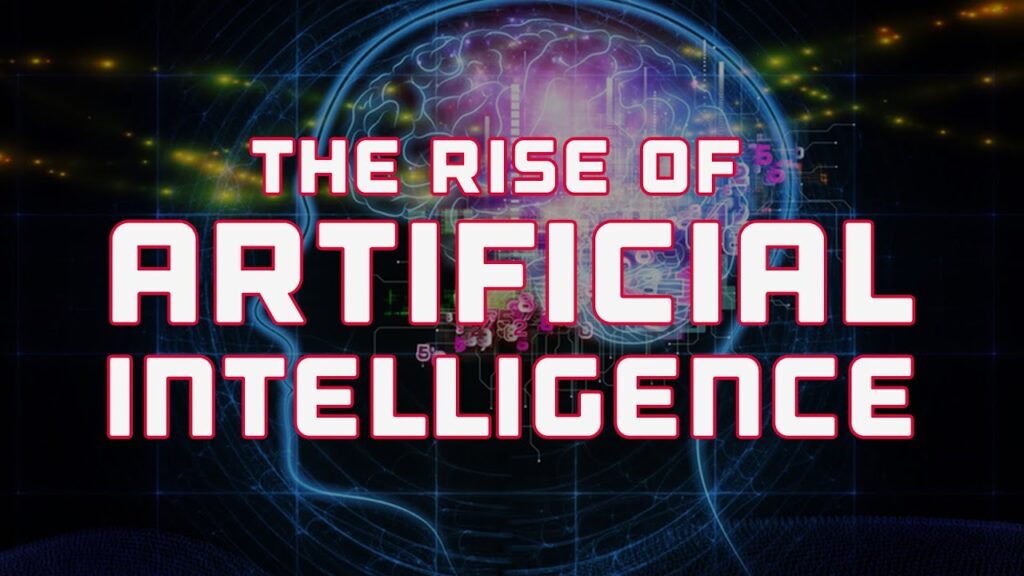The Rise of Artificial Intelligence

Introduction: Artificial Intelligence (AI) has emerged as a revolutionary technology, transforming industries and reshaping the way we live and work. With its ability to simulate human intelligence and perform tasks that traditionally required human intervention, AI has become a driving force behind innovation and automation. In this article, we will explore the various ways AI is being utilized across industries, the benefits it brings, and the potential challenges that need to be addressed.
- AI in Healthcare: One of the most promising applications of AI is in the field of healthcare. AI algorithms can analyze vast amounts of medical data, assisting in the early detection and diagnosis of diseases. Machine learning models can predict patient outcomes and recommend personalized treatment plans. Additionally, AI-powered robots can perform surgical procedures with precision and efficiency, reducing human errors. The integration of AI in healthcare has the potential to improve patient care, enhance efficiency, and save lives.
- AI in Finance: The financial industry has embraced AI to automate tasks such as fraud detection, risk assessment, and algorithmic trading. AI algorithms can analyze large datasets and identify patterns that human analysts might miss. This enables banks and financial institutions to make data-driven decisions, improve customer experience, and enhance security measures. AI-powered chatbots and virtual assistants are also being deployed to provide personalized financial advice and streamline customer interactions.
- AI in Manufacturing: AI has revolutionized the manufacturing sector by introducing automation and optimizing production processes. Robots equipped with AI capabilities can perform repetitive and labor-intensive tasks with greater accuracy and efficiency. AI algorithms can also analyze sensor data from machines, predicting equipment failures and reducing downtime. By leveraging AI, manufacturers can improve productivity, reduce costs, and enhance product quality.
- AI refers to the development of intelligent machines that can perform tasks typically requiring human intelligence. It encompasses a wide range of technologies, including machine learning, natural language processing, computer vision, and robotics. These technologies enable machines to analyze data, recognize patterns, make predictions, and interact with humans in a more human-like manner.
- AI in Transportation: The transportation industry is experiencing a significant transformation with the integration of AI technologies. Autonomous vehicles, powered by AI, are being developed to revolutionize transportation by improving safety and efficiency. AI algorithms can analyze traffic patterns, optimize routes, and manage logistics, leading to reduced congestion and fuel consumption. Furthermore, AI-based predictive maintenance can enhance the reliability and lifespan of transportation infrastructure.
- Artificial Intelligence (AI) has emerged as a transformative technology that has the potential to revolutionize numerous aspects of our lives. With its ability to mimic human intelligence and learn from data, AI has opened up a world of possibilities, ranging from automation and predictive analysis to personalized experiences and decision-making. In this article, we will delve into the concept of AI, its applications across various sectors, and the implications it has for society.
- AI in Customer Service: AI has disrupted the customer service sector by introducing chatbots and virtual assistants that can handle customer inquiries and provide real-time support. Natural Language Processing (NLP) algorithms enable these AI systems to understand and respond to customer queries accurately. This leads to improved response times, 24/7 availability, and cost savings for businesses. However, striking the right balance between human interaction and AI automation remains a challenge in delivering personalized customer experiences.
- AI in Education: The education sector is leveraging AI to enhance learning experiences and personalize education. Intelligent tutoring systems powered by AI can adapt to individual student needs and provide targeted feedback and recommendations. AI algorithms can also analyze student performance data, identifying areas of improvement and suggesting personalized learning paths.
- AI is revolutionizing the education sector by offering personalized learning experiences and adaptive tutoring. Intelligent tutoring systems can analyze student performance data, identify strengths and weaknesses, and tailor educational content accordingly. AI-powered educational platforms provide interactive and engaging learning materials, enhancing student engagement and knowledge retention.
Conclusion: Artificial Intelligence has ushered in a new era of technological advancements, transforming various industries and shaping the future. From healthcare and finance to manufacturing and transportation, AI is revolutionizing the way we operate, leading to increased efficiency, improved decision-making, and enhanced customer experiences. However, challenges such as ethical considerations, privacy concerns, and the need for human-AI collaboration must be carefully addressed to fully harness the potential of AI. As AI continues to evolve, its impact will undoubtedly reshape industries and create new opportunities for innovation and growth.
Artificial Intelligence is rapidly transforming the world around us, revolutionizing industries, and reshaping the way we live and work. Its applications span across various sectors, from business and healthcare to education and transportation. While the potential benefits are immense, it is crucial to address the ethical considerations and challenges associated with AI adoption. By ensuring responsible development and deployment, we can unleash the true power of AI and create a future where intelligent machines work in harmony with humans, driving innovation and improving the quality of our lives.
AI is revolutionizing the education sector by offering personalized learning experiences and adaptive tutoring. Intelligent tutoring systems can analyze student performance data, identify strengths and weaknesses, and tailor educational content accordingly. AI-powered educational platforms provide interactive and engaging learning materials, enhancing student engagement and knowledge retention.





